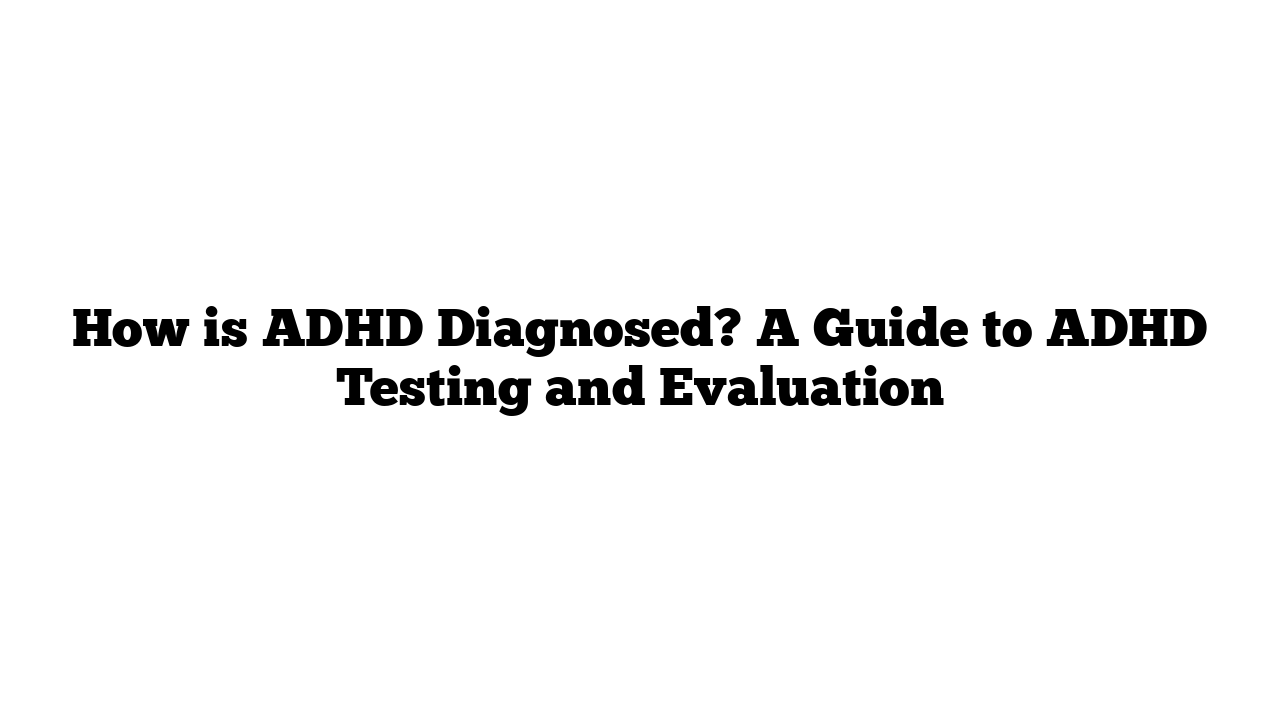Are you here because you think you or someone you care about might have ADHD? If so, welcome—grab a coffee, a tea, or perhaps a fidget cube, and let’s walk through the steps of getting tested for ADHD. I’m here to help you understand the process so you know what to expect if you’re seeking a diagnosis.
Why Get Tested for ADHD?
For adults, reaching out to get evaluated for ADHD can feel like a big hurdle—especially because ADHD itself makes organizing, planning, and sticking to schedules challenging. But if you suspect undiagnosed ADHD, it’s worth the effort. ADHD affects much more than just focus; it can impact your finances, relationships, self-care, and time management.
If you struggle with things like staying on top of bills, managing projects, showing up on time, or keeping organized, an ADHD diagnosis can be the first step toward getting the right support and treatment.
How Adult ADHD is Diagnosed
Here’s what you need to know about ADHD evaluations:
1. No Magic Test
ADHD diagnosis isn’t as simple as taking a single test. There’s no blood test, brain scan, or puzzle task that reveals ADHD. Instead, a diagnosis relies on comprehensive clinical evaluation, where mental health professionals—such as psychologists, psychiatrists, or social workers—use interviews and questionnaires to understand your symptoms.
2. Clinical Interviews: The “Gold Standard”
A good clinician will listen closely to your experiences and ask questions to get a thorough picture of your symptoms. They may also gather standardized questionnaire data to compare your scores against those of adults with and without ADHD.
3. Including Third-Party Observations
Because self-awareness about symptoms can be limited, your clinician may ask for input from someone who knows you well, such as a family member or close friend. ADHD can be subtle and complex, and third-party perspectives can help provide a fuller understanding.
4. Ruling Out Other Conditions
Your clinician may recommend a general medical checkup to rule out other issues that could look like ADHD, such as blood sugar problems, sleep disorders, or even hearing difficulties. ADHD has similar symptoms to various medical conditions, so a full health screening can help clarify the diagnosis.
5. Additional Performance Tasks
In some cases, clinicians may use cognitive tasks to assess memory, attention, or learning abilities. Although these tools can provide helpful insights, they aren’t specifically designed to diagnose ADHD, and many people with ADHD may still perform well on short, novel tasks.
Choosing the Right Professional
Not all clinicians are experts in adult ADHD, so it’s essential to find someone experienced in assessing ADHD in adults. While different licensed professionals can diagnose ADHD, it’s especially common for clinical psychologists, psychiatrists, neuropsychologists, or behavioral neurologists to conduct these evaluations.
Remember, ADHD is a well-researched condition that affects millions of adults in the U.S. If you think you have ADHD, don’t hesitate to seek support. A knowledgeable professional will listen, gather detailed information, and respect your concerns, so you can get the answers and support you need.
Final Thoughts
Receiving a proper evaluation for ADHD may take time and patience, but it can open the door to improved strategies for managing symptoms. If, after a thorough evaluation, a clinician determines that you don’t have ADHD, be open to other possibilities and recommendations they may suggest. Whatever the outcome, pursuing an evaluation is a worthwhile step in finding answers and support.
For more resources and to locate professionals experienced in ADHD diagnosis near you, visit medicaltimes.io website.
